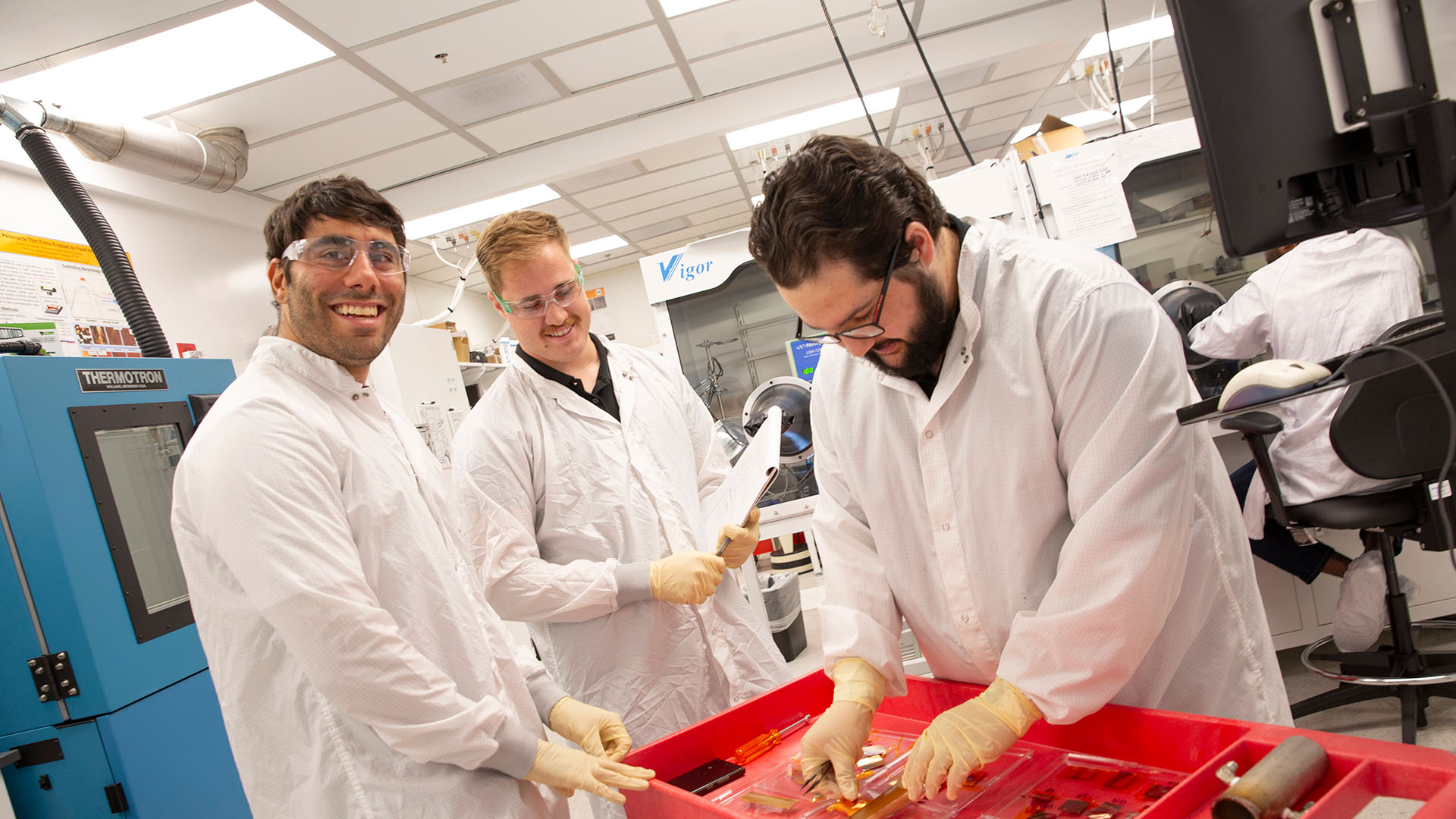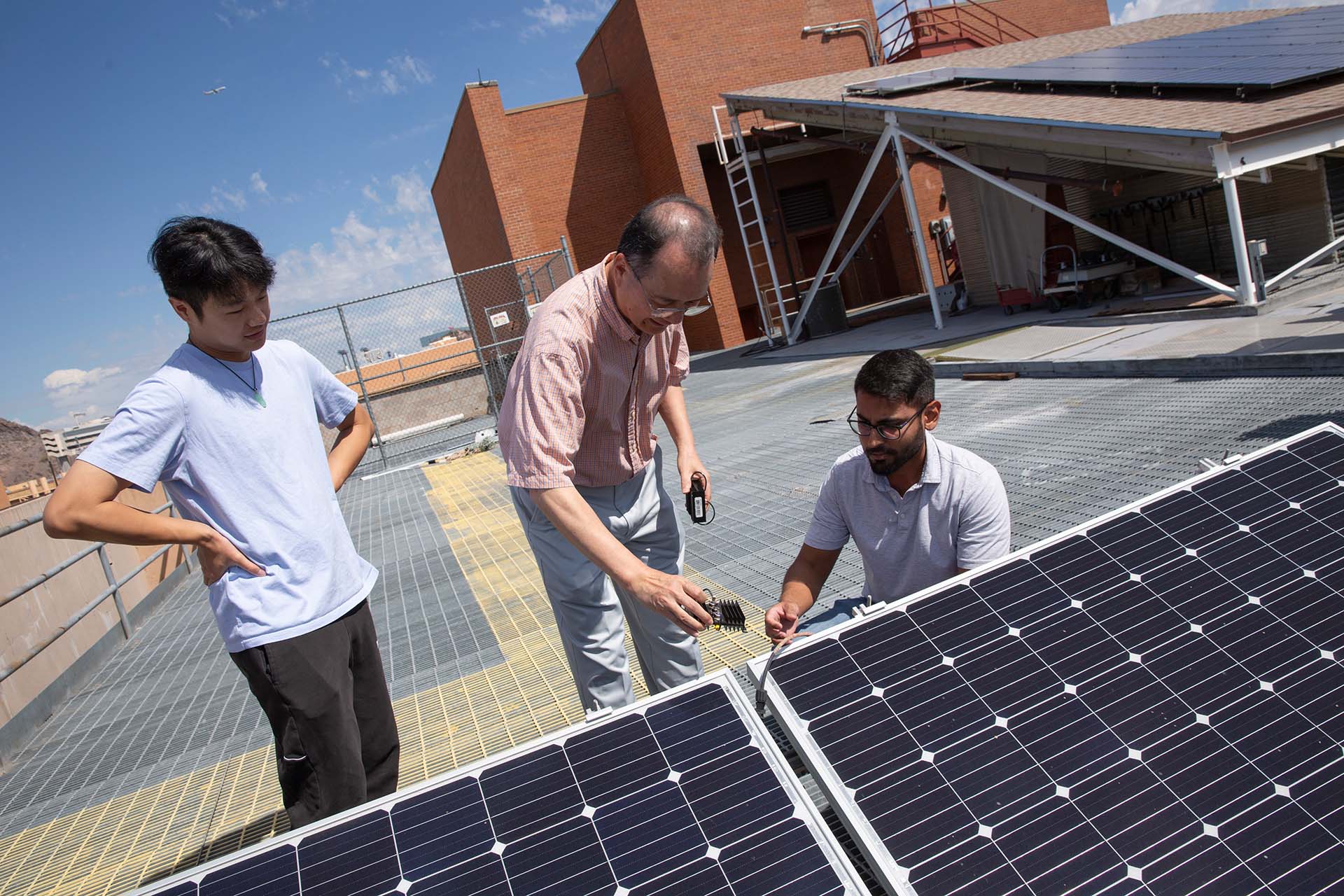
Undergraduate programs
The electrical engineering field is becoming more interdisciplinary, using electrical and computing devices in wireless communications, power generation, medicine, energy, space exploration and environmental conservation. Microprocessors have opened new opportunities for electrical engineers to improve products like cars, consumer electronics, entertainment systems, power tools and test instruments.
Our faculty, experts in diverse areas of electrical engineering, are committed to integrating research with relevant academic programs. They have achieved national recognition for their excellence in research, training, and entrepreneurship.

Electrical engineering, BSE
Initial coursework in mathematics, science and engineering foundation classes build a solid base of knowledge. The foundation classes help you explore engineering through hands-on projects and activities.
Approved technical elective courses provide students with an opportunity to broaden their background in electrical engineering or to study, in greater depth, technical subjects in which they have special interest.

Electrical engineering (electric power and energy systems), BSE
This concentration prepares you for positions in industries dealing with the generation, transmission and utilization of electric power. Generation includes conventional power generation methods, such as from fossil fuels and nuclear energy, and alternative energy systems such as those that use solar, wind and fuel cells for power.
Our undergraduate programs aim to prepare graduates for work as electrical engineers in commercial, industrial, academic and government organizations. Our programs also intend to prepare graduates for continued learning experiences in continuing education or a formal graduate or professional program. We aim to equip our alumni will to advance to supervisory and leadership positions in their chosen careers.
Three to seven years after graduation, we expect our alumni to do one or more of the following:
Progress in a chosen career, as shown by promotion to a position of increased technical, supervisory or management responsibility.
Graduate from a graduate or professional school degree program.
Achieve success in a government, industrial, commercial, entrepreneurial or academic position, as evidenced by continued employment and technical accomplishments.
Ability to identify, formulate and solve complex engineering problems by applying principles of engineering, science and math.
Ability to apply engineering design to produce solutions that meet specified needs with consideration of public health, safety and welfare, as well as global, cultural, social, environmental and economic factors.
Ability to communicate effectively with a range of audiences.
Ability to recognize ethical and professional responsibilities in engineering situations and make informed judgments, which must consider the impact of engineering solutions in global, economic, environmental and societal contexts.
Ability to function effectively on a team whose members together provide leadership, create a collaborative and inclusive environment, establish goals, plan tasks and meet objectives.
Ability to develop and conduct appropriate experimentation, analyze and interpret data and use engineering judgment to draw conclusions.
Ability to acquire and apply new knowledge as needed using appropriate learning strategies.